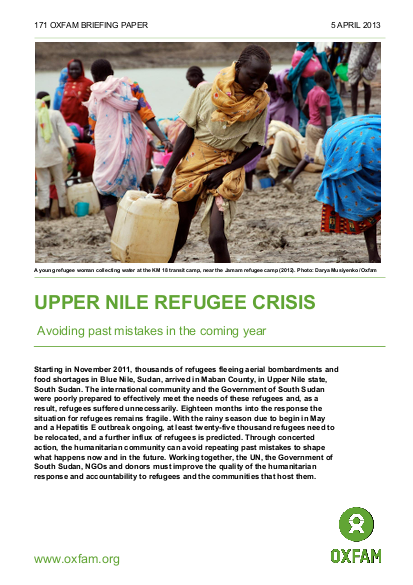
Starting in November 2011, thousands of refugees fleeing aerial bombardments and food shortages in Blue Nile, Sudan, arrived in Maban County, in Upper Nile state, South Sudan. The international community and the Government of South Sudan were poorly prepared to effectively meet the needs of these refugees and, as a result, refugees suffered unnecessarily. Eighteen months into the response the situation for refugees remains fragile. With the rainy season due to begin in May and a Hepatitis E outbreak ongoing, at least twenty-five thousand refugees need to be relocated, and a further influx of refugees is predicted. Through concerted action, the humanitarian community can avoid repeating past mistakes to shape what happens now and in the future. Working together, the UN, the Government of South Sudan, NGOs and donors must improve the quality of the humanitarian response and accountability to refugees and the communities that host them.